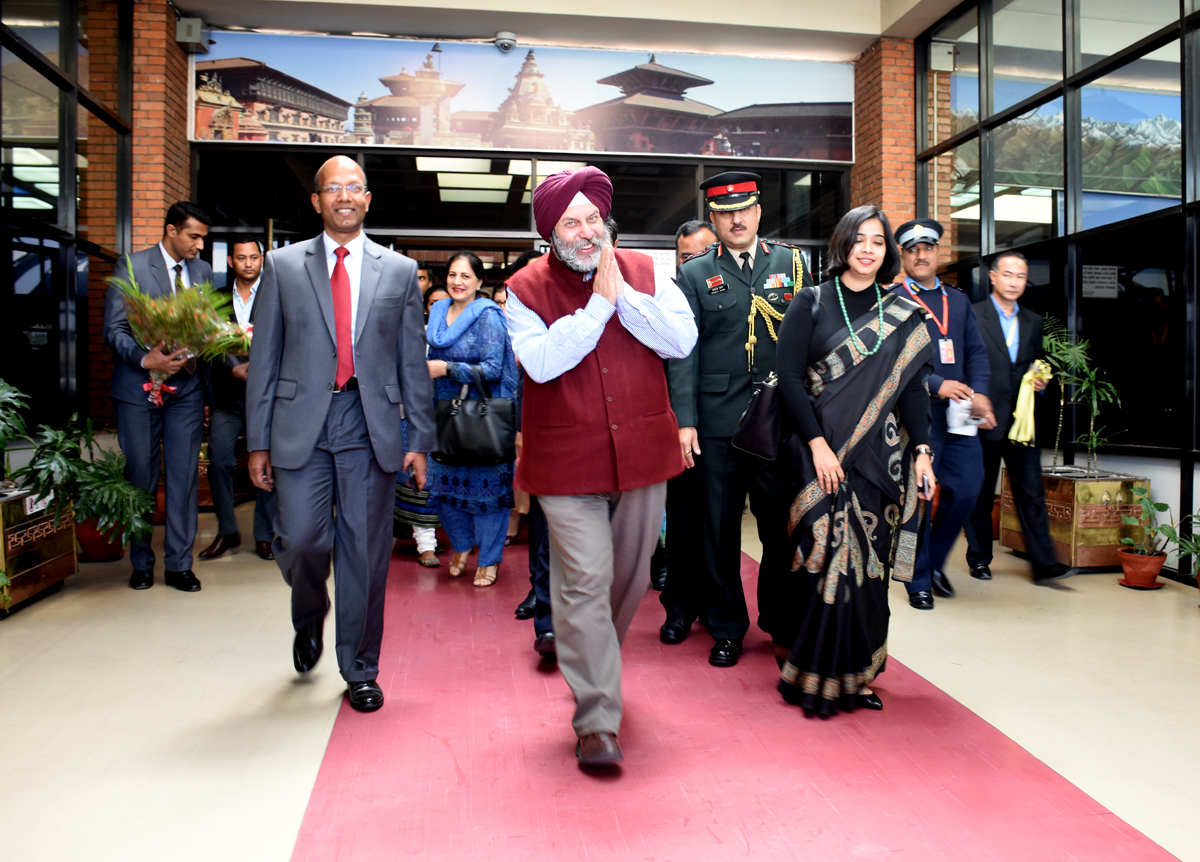 KATHMANDU, March 26 (Nepal Foreign affairs)–Newly appointed Indian Ambassador to Nepal Manjeev Singh Puri has assumed his office at the Indian Embassy in Kathmandu, on Saturday.
KATHMANDU, March 26 (Nepal Foreign affairs)–Newly appointed Indian Ambassador to Nepal Manjeev Singh Puri has assumed his office at the Indian Embassy in Kathmandu, on Saturday.
According to the embassy, Puri will present his letter of credence President Bidya Devi Bhandari on Sunday at the Presidential Palace Sheetalnibas.
Ambassador Puri is a member of the Indian Foreign Service having joined the Service in 1982.
Puri has assumed charge at such a critical time when the Nepal-India relations is at the lowest ebb due to unwarranted India’s interference in domestic affairs of Nepal. His predecessor Ranjit Rae’s tenure was highly controversial witnessing several rounds of ups and downs in the bilateral relationship, particularly after India imposed a five-month long undeclared trade embargo on Nepal from September 2015 to February last year backing a section of Madhesi elites who expressed reservations on the newly promulgated constitution at the behest of India itself. The blockade brought Nepal’s bilateral trade with India and third country trade via Indian territory to a standstill.
In fact, the blockade became counterproductive for India—which further helped to heighten the prevailing anti-Indian sentiments in Nepal particularly among the young generation. Therefore, realizing this, the blockade was lifted by India on the eve of then PM KP Sharma Oli’s sojourn to New Delhi. Ambassador Rae’s unwarranted remarks were highly criticized in Nepal who projected himself as Viceroy. He landed into multiple controversies that didn’t bear fruit in the bilateral relations.
Puri, who has never had an experience of taking up the diplomatic assignment in India’s neighborhood, served earlier as India’s ambassador to Belgium, Luxembourg and the European Union. He also served as deputy permanent representative of India to the United Nations in New York from 2009 to 2013.
A career diplomat from IFS-1982 batch, Puri, needs to carefully handle his job showing enough diplomatic maturity as the tiny Himalayan nation is in the phase of implementing its historic constitution. Expressing its reservations, the southern neighbor has not yet welcomed Nepal’s constitution, which was approved by 90 percent of elected Constituent Assembly members.
Puri is going to face the same questions from the people which his predecessor was repeatedly asked several times but had failed to give a logical answer. As Nepal is gearing up to hold local body elections on May 14, India is eyeing who is going to win the elections. In the backdrop of New Delhi’s continuous discontent to the constitution, alleging of being non-inclusive, the role of ambassador Puri will be crucial.
India has not officially made clear its position on the 14th May election but the United Democratic Madhesi Front (UDMF), which has been enjoying New Delhi’s tacit support, has said that they will obstruct the election until the second amendment on the constitution is made.

